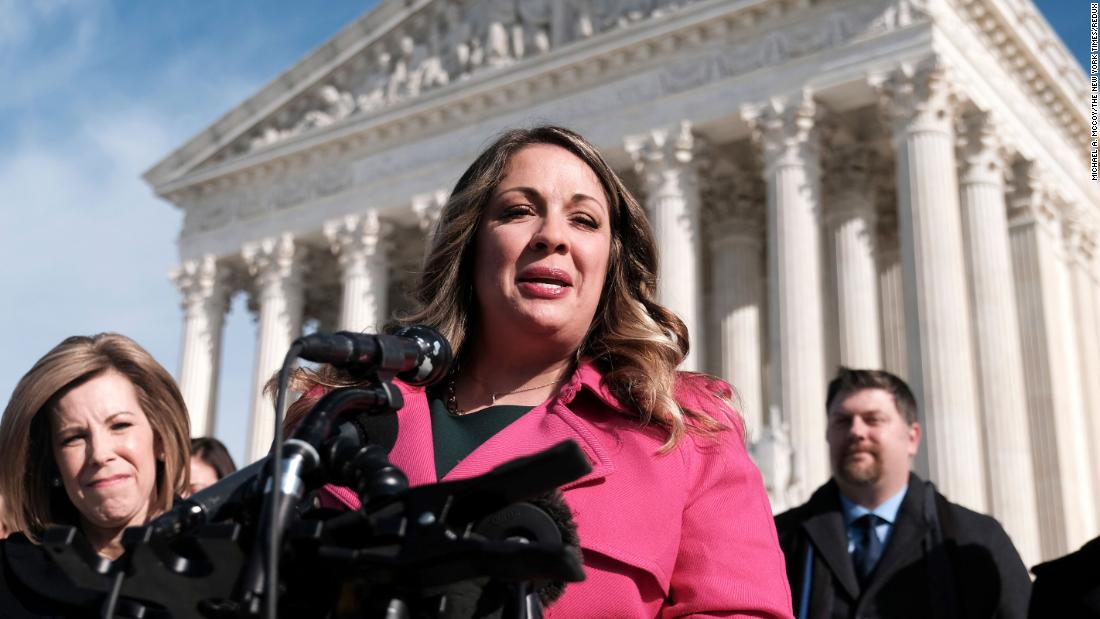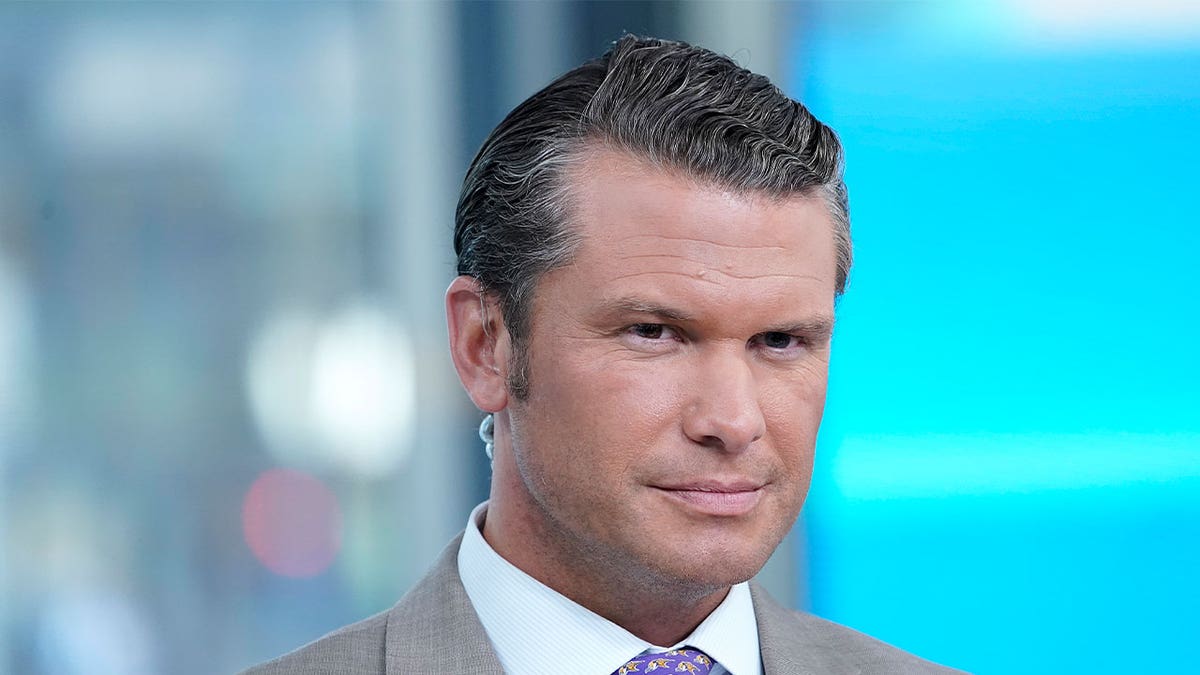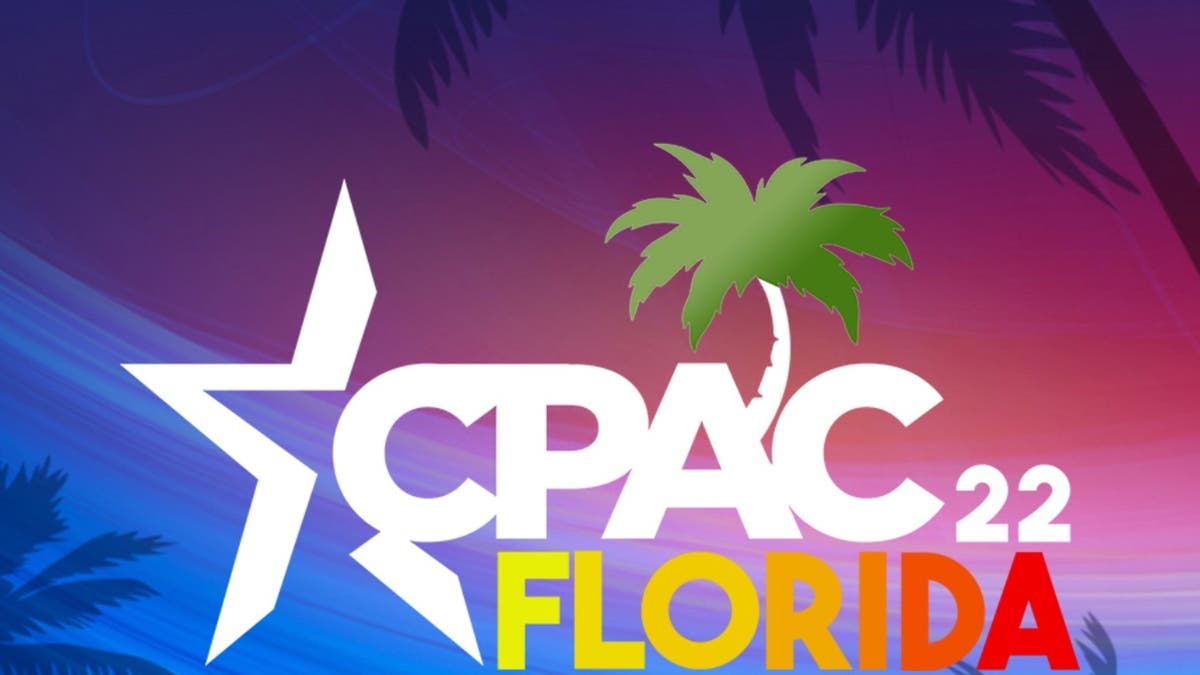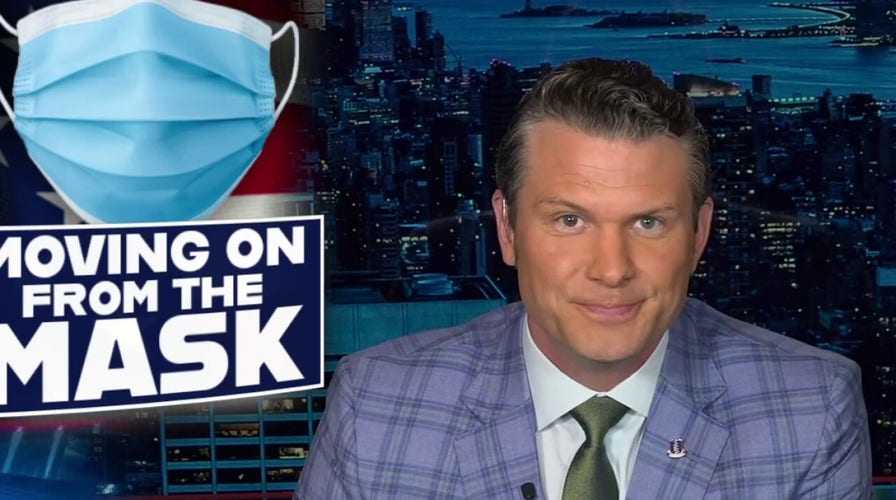- by foxnews
- 27 Nov 2024
Supreme Court limits LGBTQ protections with ruling in favor of Christian web designer

The Supreme Court Friday ruled in favor of a Christian web designer in Colorado who refuses to create websites to celebrate same-sex weddings out of religious objections.
The 6-3 decision was penned by Justice Neil Gorsuch and joined by Chief Justice John Roberts and Justices Samuel Alito, Amy Coney Barrett, Brett Kavanaugh and Clarence Thomas. Justice Sonia Sotomayor penned a dissent joined by her liberal colleagues Justices Elena Kagan and Ketanji Brown Jackson.
The court's decision represents a devastating blow to LGBTQ protections, which have in recent years been bolstered by landmark decisions at the nation's highest court, including one authored three years ago by Gorsuch in which the majority expanded protections for LGBTQ workers, and the 2015 case legalizing same-sex marriage nationwide.
Lorie Smith, who runs a company called 303 Creative, sought to expand her business into the area of weddings and wrote a webpage explaining why she won't create websites for same-sex couple. But under a Colorado public accommodations law, she said she cannot post the statement because the state considers it illegal.
The ruling - rooted in free speech grounds - will pierce state public accommodation laws for those businesses who sell so-called "expressive" goods. It is the latest victory for religious conservatives at the high court and will alarm critics who fear the current court is setting its sights on overturning the 2015 marriage case.
Gorsuch wrote that "the First Amendment envisions the United States as a rich and complex place where all persons are free to think and speak as they wish, not as the government demands." He said Colorado sought to "deny that promise."
"All manner of speech - from 'pictures, films, paintings, drawings, and engravings,' to 'oral utterance and the printed word' - qualify for the First Amendment's protections; no less can hold true when it comes to speech like Ms. Smith's conveyed over the Internet," Gorsuch said.
In dissent, Sotomayor said the decision will undermine the government's compelling interest in ensuring that all Americans have equal access to the public marketplace.
"Today, the Court, for the first time in its history, grants a business open to the public a constitutional right to refuse to serve members of a protected class," she wrote.
"Specifically, the Court holds that the First Amendment exempts a website design company from a state law that prohibits the company from denying wedding websites to same-sex couples if the company chooses to sell those websites to the public," she wrote.
Sotomayor called this a "sad day in American constitutional law and the lives of LGBT people."
"By issuing this new license to discriminate in a case brought by a company that seeks to deny same-sex couples the full and equal enjoyment of its services, the immediate, symbolic effect of the decision is to mark gays and lesbians for second-class status," she wrote in dissent.
She said the "decision itself inflicts a kind of stigmatic harm, on top of any harm caused by denials of service."
"The opinion of the Court is, quite literally, a notice that reads: 'Some services may be denied to same-sex couples.'"
She suggested that decision would be more far-reaching. "The decision's logic cannot be limited to discrimination on the basis of sexual orientation or gender identity."
"The decision threatens to balkanize the market and to allow the exclusion of other groups from many services," she said, adding that "a website designer could equally refuse to create a wedding website for an interracial couple, for example."
But in a footnote, Gorsuch pushed back. "Our decision today does not concern - much less endorse - anything like the 'straight couples only' notices the dissent conjures out of thin air."
Smith's lawyer, Kristen Waggoner, said in a statement Friday, "The U.S. Supreme Court rightly reaffirmed that the government can't force Americans to say things they don't believe. The court reiterated that it's unconstitutional for the state to eliminate from the public square ideas it dislikes, including the belief that marriage is the union of husband and wife."
The court's decision came on the final day of Pride Month, an annual celebration of the LGBTQ community and its movement for equality that takes place throughout June.
In her dissent, Sotomayor laid out key moments in that decades-long movement as she explained how states came to pass the kinds of laws at issue in the case and why they're necessary for members of the community. "Who could forget the brutal murder of Matthew Shepard?" she wrote, adding later: "Or the Pulse nightclub massacre, the second-deadliest mass shooting in U. S. history?"
"One significant change has been the addition of sexual orientation and gender identity to public accommodations laws," Sotomayor wrote. "LGBT people do not seek any special treatment. All they seek is to exist in public. To inhabit public spaces on the same terms and conditions as everyone else."
Gorsuch's opinion delivering a massive loss to the LGBTQ community likely came as a surprise to members of the LGBTQ community after he delivered them a key win in 2020.
In that case, Bostock v. Clayton County, the conservative justice wrote for the majority that Title VII of the Civil Rights Act, which bars discrimination "because of sex," also covers claims based on sexual orientation and gender identity.
The decision extended protections to millions of workers nationwide and was a defeat for the Trump administration, which argued that the sex discrimination bar in Title VII did not extend to claims of gender identity and sexual orientation.
LGBTQ advocates quickly condemned the ruling, echoing Sotomayor's argument that it gives some businesses a federal right to discriminate against members of the community.
"This decision by the Supreme Court is a dangerous step backward, giving some businesses the power to discriminate against people simply because of who we are," Human Rights Campaign President Kelley Robinson said in a statement.
"People deserve to have commercial spaces that are safe and welcoming. This decision continues to affirm how radical and out-of-touch this Court is, especially when 80 percent of Americans support robust and LGBTQ+ inclusive nondiscrimination laws," she said.
The American Civil Liberties Union similarly criticized the ruling, saying in a tweet that it means "certain businesses have a right to discriminate when selling customized, expressive services. This is the first time the Court has permitted a business open to the public to turn away customers in defiance of a nondiscrimination law."
And Democratic Rep. Ritchie Torres, an openly gay member of the House, said on Twitter that the court's majority "invokes religious liberty to license discrimination against LGBTQ people."
"The LGBTQ community might be the first victim of the Supreme Court's decision but it won't be the last. 'Injustice anywhere is a threat to justice everywhere,'" Torres wrote in a tweet.
Waggoner, Smith's lawyer, came under intense attack during oral arguments in the case from liberals on the bench who launched a slew of hypotheticals meant to explore the potential sweeping consequences of the case if Smith were to prevail. They suggested that other businesses could discriminate based on race or physical disability.
Smith - who has yet to expand her business into wedding websites - said that she is willing to work with all people, regardless of their sexual orientation, but she refuses to create websites that celebrate same-sex marriage.
"Nobody should be put in that position and the court's decision yesterday protects speech not just for me but the LGBT website designer and every other artist out there," Smith said on CNN's "Smerconish" on Saturday. "Nobody should be punished by the government for speaking consistent with their beliefs."
"I create speech for a living. When speech is involved, speech should be protected," she added.
"The state of Colorado is forcing me to create custom, unique artwork communicating and celebrating a different view of marriage, a view of marriage that goes against my deeply held beliefs," Smith told CNN in an interview.
When the Supreme Court agreed to hear the case in February 2022, the justices sidestepped whether the law violated Smith's free exercise of religion. Instead, the court said it would look at the dispute through the lens of free speech and decide whether applying the public accommodations law "to compel an artist to speak or stay silent" violates the Free Speech Clause of the Constitution's First Amendment.
Twenty states had weighed in in favor of Smith in friend-of-the-court briefs. They said that they have public accommodation laws on the books, but their laws exempt those businesspeople who make their living creating custom art.
Smith has written a webpage explaining that her decision is based on her belief that marriage should be between one man and one woman. But she has not yet published the statement out of fear of violating the "publication clause" of the law that bars a company from publishing any communication that indicates that a public accommodation service will be refused based on sexual orientation, Waggoner claims in court papers.
Colorado Solicitor General Eric Olson argued that the law does not regulate or compel speech. Instead, he said, it regulates commercial conduct to ensure all customers have the ability to participate in everyday commercial exchanges regardless of their religion, race, disability or other characteristics. He said the Colorado law targets "commercial conduct of discriminatory sales" and that its effect on expression is "at most incidental."
"Granting such a license to discriminate would empower all businesses that offer what they believe to be expressive services, from architects, to photographers, to consultants, to refuse service to customers because of their disability, sexual orientation, religion or race," he said.
He added that the law does not aim to suppress any message that Smith may want to express. Instead, 303 Creative is free to decide what design services to offer and whether to communicate its vision of marriage through biblical quotes on its wedding websites. But critically, the law requires the company to sell whatever product or service it offers to all.
This story has been updated with additional information.
CNN's Morgan Rimmer and Andrew Millman contributed to this report.
- by foxnews
- descember 09, 2016
Flight passenger ignites debate after posting photo of traveler's coat thrown over seat
A traveler who said he was flying on Delta posted a photo on Reddit showing that a passenger had their jacket draped over a seat, sparking a discussion in the comments section.
read more


